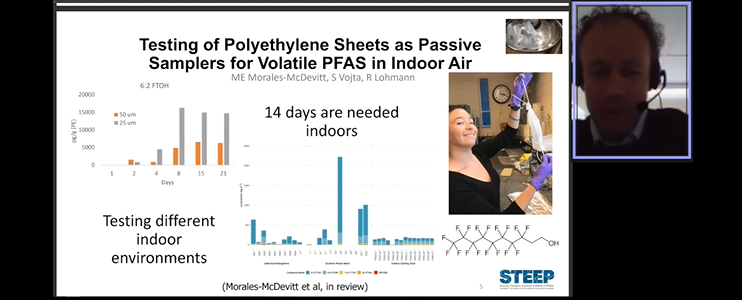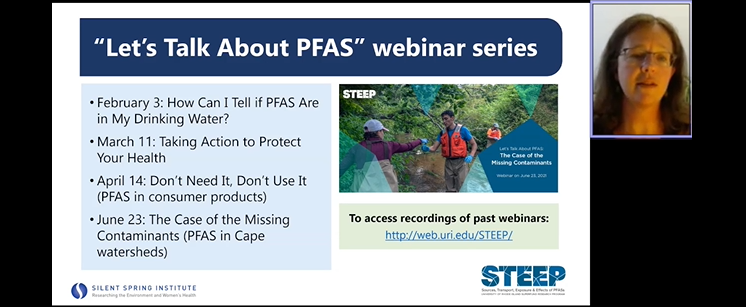On July 6, 2021, STEEP researchers Rainer Lohmann and Laurel Schaider gave testimony at a public hearing held by the Massachusetts PFAS Interagency Task Force. The STEEP PI and co-lead spoke to the task force about their recent research on PFAS effects and testing as well as their recommendations for action.
Dr. Schaider of the Silent Spring Institute presented her and her colleagues’ work identifying sources of PFAS in Cape Cod groundwater, testing drinking water, and engaging members of impacted communities. She recommended testing local foods and residents’ blood in communities impacted by PFAS, including ensuring equitable access to blood testing. She also emphasized the importance of long-term studies that evaluate health effects over the course of individuals’ lifetimes when they have been exposed to PFAS.
Dr. Lohmann, a professor at URI, touched on several research initiatives from his laboratory group, including development of passive samplers for PFAS detection in indoor air and outdoor air and water. He also shared work comparing PFAS concentrations in seabirds found in Rhode Island, Massachusetts, and North Carolina. Dr. Lohmann then explained the tradeoffs of regulating PFAS broadly as a group or subgroups as opposed to regulating specific compounds individually, which requires more data.
The PFAS Interagency Task Force was formed in 2020 and is co-chaired by Massachusetts House Representative Kate Hogan and State Senator Julian Cyr. Its purpose is to study what is known about PFAS compounds, including how people get exposed to them and strategies for mitigation, and make recommendations to the MA Legislature. It has held nine hearings, with a tenth scheduled for February 8th, 2022, and STEEP researcher, Dr. Elsie Sunderland, gave testimony at a previous meeting. The input of these researchers and other experts will help give the task force members the information and insights they need to make their recommendations.



